HSBC 2004 Annual Report Download - page 213
Download and view the complete annual report
Please find page 213 of the 2004 HSBC annual report below. You can navigate through the pages in the report by either clicking on the pages listed below, or by using the keyword search tool below to find specific information within the annual report.-
 1
1 -
 2
2 -
 3
3 -
 4
4 -
 5
5 -
 6
6 -
 7
7 -
 8
8 -
 9
9 -
 10
10 -
 11
11 -
 12
12 -
 13
13 -
 14
14 -
 15
15 -
 16
16 -
 17
17 -
 18
18 -
 19
19 -
 20
20 -
 21
21 -
 22
22 -
 23
23 -
 24
24 -
 25
25 -
 26
26 -
 27
27 -
 28
28 -
 29
29 -
 30
30 -
 31
31 -
 32
32 -
 33
33 -
 34
34 -
 35
35 -
 36
36 -
 37
37 -
 38
38 -
 39
39 -
 40
40 -
 41
41 -
 42
42 -
 43
43 -
 44
44 -
 45
45 -
 46
46 -
 47
47 -
 48
48 -
 49
49 -
 50
50 -
 51
51 -
 52
52 -
 53
53 -
 54
54 -
 55
55 -
 56
56 -
 57
57 -
 58
58 -
 59
59 -
 60
60 -
 61
61 -
 62
62 -
 63
63 -
 64
64 -
 65
65 -
 66
66 -
 67
67 -
 68
68 -
 69
69 -
 70
70 -
 71
71 -
 72
72 -
 73
73 -
 74
74 -
 75
75 -
 76
76 -
 77
77 -
 78
78 -
 79
79 -
 80
80 -
 81
81 -
 82
82 -
 83
83 -
 84
84 -
 85
85 -
 86
86 -
 87
87 -
 88
88 -
 89
89 -
 90
90 -
 91
91 -
 92
92 -
 93
93 -
 94
94 -
 95
95 -
 96
96 -
 97
97 -
 98
98 -
 99
99 -
 100
100 -
 101
101 -
 102
102 -
 103
103 -
 104
104 -
 105
105 -
 106
106 -
 107
107 -
 108
108 -
 109
109 -
 110
110 -
 111
111 -
 112
112 -
 113
113 -
 114
114 -
 115
115 -
 116
116 -
 117
117 -
 118
118 -
 119
119 -
 120
120 -
 121
121 -
 122
122 -
 123
123 -
 124
124 -
 125
125 -
 126
126 -
 127
127 -
 128
128 -
 129
129 -
 130
130 -
 131
131 -
 132
132 -
 133
133 -
 134
134 -
 135
135 -
 136
136 -
 137
137 -
 138
138 -
 139
139 -
 140
140 -
 141
141 -
 142
142 -
 143
143 -
 144
144 -
 145
145 -
 146
146 -
 147
147 -
 148
148 -
 149
149 -
 150
150 -
 151
151 -
 152
152 -
 153
153 -
 154
154 -
 155
155 -
 156
156 -
 157
157 -
 158
158 -
 159
159 -
 160
160 -
 161
161 -
 162
162 -
 163
163 -
 164
164 -
 165
165 -
 166
166 -
 167
167 -
 168
168 -
 169
169 -
 170
170 -
 171
171 -
 172
172 -
 173
173 -
 174
174 -
 175
175 -
 176
176 -
 177
177 -
 178
178 -
 179
179 -
 180
180 -
 181
181 -
 182
182 -
 183
183 -
 184
184 -
 185
185 -
 186
186 -
 187
187 -
 188
188 -
 189
189 -
 190
190 -
 191
191 -
 192
192 -
 193
193 -
 194
194 -
 195
195 -
 196
196 -
 197
197 -
 198
198 -
 199
199 -
 200
200 -
 201
201 -
 202
202 -
 203
203 -
 204
204 -
 205
205 -
 206
206 -
 207
207 -
 208
208 -
 209
209 -
 210
210 -
 211
211 -
 212
212 -
 213
213 -
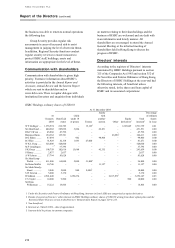 214
214 -
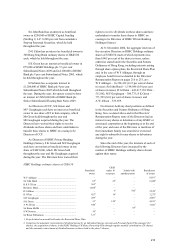 215
215 -
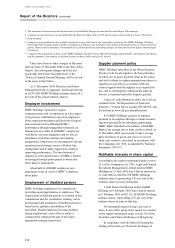 216
216 -
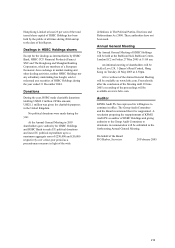 217
217 -
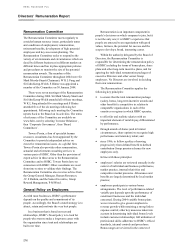 218
218 -
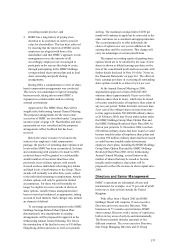 219
219 -
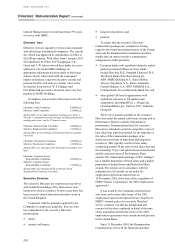 220
220 -
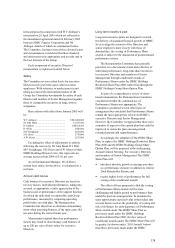 221
221 -
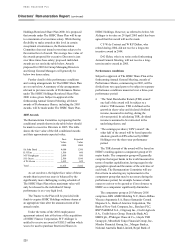 222
222 -
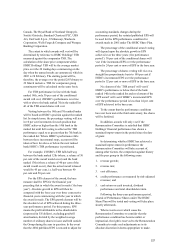 223
223 -
 224
224 -
 225
225 -
 226
226 -
 227
227 -
 228
228 -
 229
229 -
 230
230 -
 231
231 -
 232
232 -
 233
233 -
 234
234 -
 235
235 -
 236
236 -
 237
237 -
 238
238 -
 239
239 -
 240
240 -
 241
241 -
 242
242 -
 243
243 -
 244
244 -
 245
245 -
 246
246 -
 247
247 -
 248
248 -
 249
249 -
 250
250 -
 251
251 -
 252
252 -
 253
253 -
 254
254 -
 255
255 -
 256
256 -
 257
257 -
 258
258 -
 259
259 -
 260
260 -
 261
261 -
 262
262 -
 263
263 -
 264
264 -
 265
265 -
 266
266 -
 267
267 -
 268
268 -
 269
269 -
 270
270 -
 271
271 -
 272
272 -
 273
273 -
 274
274 -
 275
275 -
 276
276 -
 277
277 -
 278
278 -
 279
279 -
 280
280 -
 281
281 -
 282
282 -
 283
283 -
 284
284 -
 285
285 -
 286
286 -
 287
287 -
 288
288 -
 289
289 -
 290
290 -
 291
291 -
 292
292 -
 293
293 -
 294
294 -
 295
295 -
 296
296 -
 297
297 -
 298
298 -
 299
299 -
 300
300 -
 301
301 -
 302
302 -
 303
303 -
 304
304 -
 305
305 -
 306
306 -
 307
307 -
 308
308 -
 309
309 -
 310
310 -
 311
311 -
 312
312 -
 313
313 -
 314
314 -
 315
315 -
 316
316 -
 317
317 -
 318
318 -
 319
319 -
 320
320 -
 321
321 -
 322
322 -
 323
323 -
 324
324 -
 325
325 -
 326
326 -
 327
327 -
 328
328 -
 329
329 -
 330
330 -
 331
331 -
 332
332 -
 333
333 -
 334
334 -
 335
335 -
 336
336 -
 337
337 -
 338
338 -
 339
339 -
 340
340 -
 341
341 -
 342
342 -
 343
343 -
 344
344 -
 345
345 -
 346
346 -
 347
347 -
 348
348 -
 349
349 -
 350
350 -
 351
351 -
 352
352 -
 353
353 -
 354
354 -
 355
355 -
 356
356 -
 357
357 -
 358
358 -
 359
359 -
 360
360 -
 361
361 -
 362
362 -
 363
363 -
 364
364 -
 365
365 -
 366
366 -
 367
367 -
 368
368 -
 369
369 -
 370
370 -
 371
371 -
 372
372 -
 373
373 -
 374
374 -
 375
375 -
 376
376 -
 377
377 -
 378
378
 |
 |

211
The Directors, through the Group Audit
Committee, have conducted an annual review of the
effectiveness of HSBC’ s system of internal control
covering all controls, including financial, operational
and compliance controls and risk management.
Reputational and operational risks
HSBC regularly updates its policies and procedures
for safeguarding against reputational and operational
risks. This is an evolutionary process which takes
account of The Association of British Insurers’
guidance on best practice when responding to social,
ethical and environmental (‘SEE’ ) risks.
The safeguarding of HSBC’s reputation is of
paramount importance to its continued prosperity
and is the responsibility of every member of staff.
HSBC has always aspired to the highest standards of
conduct and, as a matter of routine, takes account of
reputational risks to its business. The training of
Directors on appointment includes reputational
matters.
Reputational risks, including SEE matters, are
considered and assessed by the Board, the Group
Management Board, subsidiary company boards,
board committees and/or senior management during
the formulation of policy and the establishment of
HSBC standards. Standards on all major aspects of
business are set for HSBC and for individual
subsidiary companies, businesses and functions.
These policies, which form an integral part of the
internal control systems, are communicated through
manuals and statements of policy and are
promulgated through internal communications and
training. The policies cover SEE issues and set out
operational procedures in all areas of reputational
risk, including money laundering deterrence,
environmental impact, anti-corruption measures and
employee relations. The policy manuals address risk
issues in detail and co-operation between head office
departments and businesses is required to ensure a
strong adherence to HSBC’s risk management
system and its corporate social responsibility
practices.
Internal controls are an integral part of how
HSBC conducts its business. HSBC’s manuals and
statements of policy are the foundation of these
internal controls. There is a strong process in place
to ensure controls operate effectively. Any
significant failings are reported through the control
mechanisms, internal audit and compliance functions
to subsidiary company audit committees and to the
Group Audit Committee, which keeps under review
the effectiveness of the system of internal controls
and reports regularly to HSBC Holdings’ Board. In
addition, all HSBC businesses and major functions
are required to review their control procedures and to
make regular reports about any losses arising from
operational risks.
HSBC provides information in its Corporate
Social Responsibility Report and website
(www.hsbc.com/csr) on the extent to which it has
complied with its risk management policies. Aspects
covered include: how HSBC is implementing and
applying the Equator Principles to manage the
environmental and social risks in project finance;
employee diversity; environmental management and
health and safety. HSBC is using the guidelines of
the Global Reporting Initiative in producing its 2004
report.
HSBC’s internal risk management procedures
are supported by third party scrutiny and assurance.
A commentary by The Corporate Citizenship
Company in the Corporate Social Responsibility
Report and website includes both assurance and
forward-looking recommendations on HSBC’s SEE
reporting. HSBC also provides external assurance
through its participation in the Dow Jones
Sustainability Index and Business in the
Community’ s Environment Index (HSBC’s feedback
reports from which are included on our website) and
FTSE4Good. Further details are contained in
HSBC’s Corporate Social Responsibility Report
2004, available in April 2005.
Health and safety
The maintenance of appropriate health and safety
standards throughout HSBC remains a key
responsibility of all managers and HSBC is
committed to actively managing all health and safety
risks associated with its business. HSBC’ s objectives
are to identify, remove, reduce or control material
risks of fires and of accidents or injuries to
employees and visitors.
Health and Safety Policies, Group standards and
procedures are set by Group Fire and Safety and are
implemented by Health, Safety and Fire Co-
ordinators based in each country in which HSBC
operates.
HSBC faces a range of threats from terrorists
and criminals across the world. In particular, over
recent years the threat from international terrorism
has become significant in a number of areas where
HSBC operates. This threat has mainly manifested
itself in bomb attacks such as the one in Istanbul in
2003 in which HSBC’s Turkish headquarters
building was attacked. Despite suffering tragic loss
of life and major damage, existing security measures
and well-managed contingency procedures ensured
